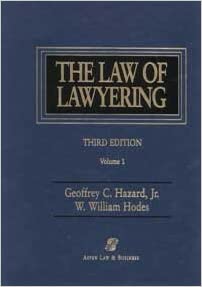Witnesses and Therefore Lawyers in Depositions, Third Observations
Previously, in another post, I set forth a few ways to proceed in depositions and deposition preparation.
Here are a few more:
(1) When a (W)itness is questioned about anything which is not simple, obvious, and/or certain: hesitate, take your time, &c., before answering. Remember, taking some time is not against any rules; it is not sanctionable; and it is not a likely ground for any impeachment–certainly not effective impeachment. Jurors will be not be offended if W does not over do it. “Moderation” in all things. Jurors are always offended is L seems push W around, or tried to do it offensively and/or without good reason. For Ls the demands of moderation are stringent.
(2) W should not give an answer of which he is certain or at least really confident. Here are some alternative parts of answers:
- “I don’t know.”
- “I don’t think I know, just now”
- “I don’t remember.”
- “I don’t seem to remember.”
- “I don’t seem to remember with you sitting across from me.”
- “I don’t remember; I can’t think about this anything close to perfectly with you and he video camera staring at me.”
- “Maybe.”
- “I think so, just now, anyway.”
- “Everything I tell you will be an estimate, as we sit here today.” (Lawyers love the “as we sit here today,” and will try to use it “against you,” i.e., to induce you to give a definite answer, of which you are not sure or reasonably certain–whatever that is.)
- “My estimate is. . . Remember, this is an estimate you are________.” [requiring? demanding? pursuing? pressing me for?
- “If I have all the documents in front of me, I think my estimate would probably be this. . . .”
- “At the time I studied all the documents, as I remember, I think my answer was this.”
- “Probably, it would be the same now.” “I think it would be the same now”
- “I’m not sure what the tone of Jack assertion was, I just remember I heard him say ‘Go fuck yourself.’ Of course, he often says stuff like that.”
- “I don’t remember precisely what he said. However, at least some of were outraged.”
Of course, the list goes on and on. However, this gives W some ideas. W can teach some of these to himself. L can suggest some of them, though not too bluntly or dogmatically and certainly not in some booklet. Be careful of this if the depo is crucial to your case. It is also important to keep in mind that not every witness an “use” all of these truths correctly (in several senses) and/or honestly (in only one sense).
(3) Now is not the time to show off. A rare exception may be the opposite. Is this one?
- Q. “You’ve never flown an airplane just like this one have you.”
- A. “I have a PhD. in this type of airplane; given that context [frame] I suppose the answer is ‘No.'”
- Objection. Answer, my question.
- A. “I think I have.”
- Q. “No. You have not. It’s a ‘Yes or No’ question.”
- Alternative #1: “No it’s not.” L’s reply: “Why do you say that?”
- Alternative #2: “To say this is a “Yes or No” question is very misleading. I’m not sure I understand it.” Q: “What do you not understand?” A: “I’m not sure. It just doesn’t sound right.” Etc.
- Q. “Why do you say that?” A: “Because I know more about these airplanes than pretty much anyone.”
(4) The expert does not disdain the deposition or the depositioner when W and L disagree. Is this an example? Consider his hypo; I’m sure there are better ones:
- Q. What is the relation amongst X, Y and Z.
- A. In the case of X and Y it’s this. In the case of Y and Z, it’s this. In the case of X and Z, I doubt the answer would make good deal of sense to you.
- L: “Answer the question. This is my deposition, and I will make these sort of decisions.”
- W: “Actually, it is not your deposition. It is my deposition! I am the one who has sworn to tell the whole truth, and I will not be twisted or shoved into an invalid corner.”
Sometimes there is a threat L will make to W, but usually, nothing comes of it, including at hearings and trial. Of course, if L tries it again at trial. “At that time, the gutsy (and perhaps reckless) witness might say, “See I told you that you wouldn’t understand it, and you still don’t.
(5) Often L’s ask this question:
- Q. “Can we agree that if you don’t understand a question, you will let me know?”
- [Quinn: The correct answer is not “Yes.“]
- Alternative #1: “I’ll even do it if I think I might not understand. You will be able to tell. I’ll say something like, ‘I’m not sure I understand.'”
- Response: “What do you not understand?”
- Possible response, if true: “What do I not understand. I’m not sure, but. . . . [I just don’t].”
- Alternative #2: I may not know that I do not understand you. That happens to most of us from time to time–indeed, quite often, it seems to me, I think–and you may ask vague and complicated questions that I think I understand but do not.”
(6) With respect to the oath, here it is: “Do you swear to tell [1] the truth, [2] the whole truth, and [3]nothing but the truth?”
- [1] is fine.
- [2] is a problem: First, what does it mean? (All the true propositions about this case? Can’t be done. Second, nobody can do it: (a) not known (b) may be forgotten.)
- [3] is a problem. It disallows for innocent mistakes.
Quinn: A good way to handle this is to say, “I’ll try the best I can.” Or: “I hope I don’t make any mistakes or forget something, but otherwise ‘Yes.'”
Quinn Again: I’ve never seen a judge disqualify a witness on these grounds, and I’ve never seen L try to raise hell about it either.







Recent Comments